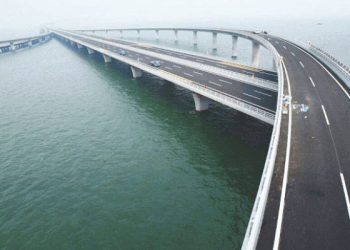The recent policy by the federal government to stop illegal charter services in air transport has drawn a lot of attention while exposing the laxity of the Nigerian Civil Aviation Authority (NCAA). Aviation Minister, Mr. Osita Chidoka at the inauguration of Aviation Committee Initiative directed those who use private registered aircraft for commercial purposes to stop forthwith or they would be grounded.
To the extent that these illegal operators account for about 70 per cent of the commercial charter service segment of the air transport market in Nigeria today, we support the measure taken by the minister. We are also aware that of about 140 private jets operating in Nigeria, over 90 of them are privately registered yet most of these aircraft are used for commercial purposes. Such a state of affair is definitely unacceptable and we encourage the minister to back his threat with concrete action since his deadline expired last Sunday.
It is perhaps these illegal operations that have spurned the high demand for private jets in Nigeria, such that some people now borrow money from financial institutions (at home and abroad) to buy private jets, register them in the countries where the aircraft were manufactured and ferry them to Nigeria to operate commercial charter. In fact, some banks in these countries lend money to Nigerians to acquire the jets, register them there under aircraft management and maintenance companies where they pay certain charges, while they use them to come and earn money in Nigeria. They also come in with full foreign crew from those countries while servicing the loans from revenues earned locally from their operations.
Such is the lucrative nature of the business that by 2012, Nigeria had become the largest market for private jets demand in Africa. And it has been estimated that over N300 billion is repatriated by illegal charter operators overseas every year and these include profits from charter services, payment for leased aircraft, remuneration of foreign crew and maintenance costs paid to foreign companies. For example, depending on the size of the aircraft, Nigerians who operate these aircraft pay about $500, 000 per month on lease while the pilot in command is paid about $10, 000 to $15, 000 per month as salary under the work schedule of one month on and one month off. While they are off duty, these foreign pilots are still paid and each has the full compliments of a first class or business class return ticket from their country of citizenship. While in Nigeria they are provided accommodation, equivalent of five-star hotel with security.
Operators of these aircraft are reluctant to deregister them abroad and then register them locally because this means they would have to pay more for insurance. But that brings in the element of risk in using private registered aircraft to operate charter services because the aircraft passengers are not covered by insurance. So in case of accident the passengers’ families would not be entitled to any form of compensation.
Against the background that general aviation is the area that most countries use to train their manpower, Nigeria loses in many ways by allowing these illegal charter service providers to continue to thrive. They have taken business from those duly registered as commercial charter operators who pay 5 per cent charges to the regulatory authorities and they make our country to appear like a jungle without rules.
However, that these aircraft are being used for charter services even when their certification by the regulatory body recognises them as private jets is a failure of regulation. The allegation is that the NCAA officials are aware of the illicit business but chose to look the other way. Somebody must put his foot down and say thus far and no more. Is Osita Chidoka that man?













































